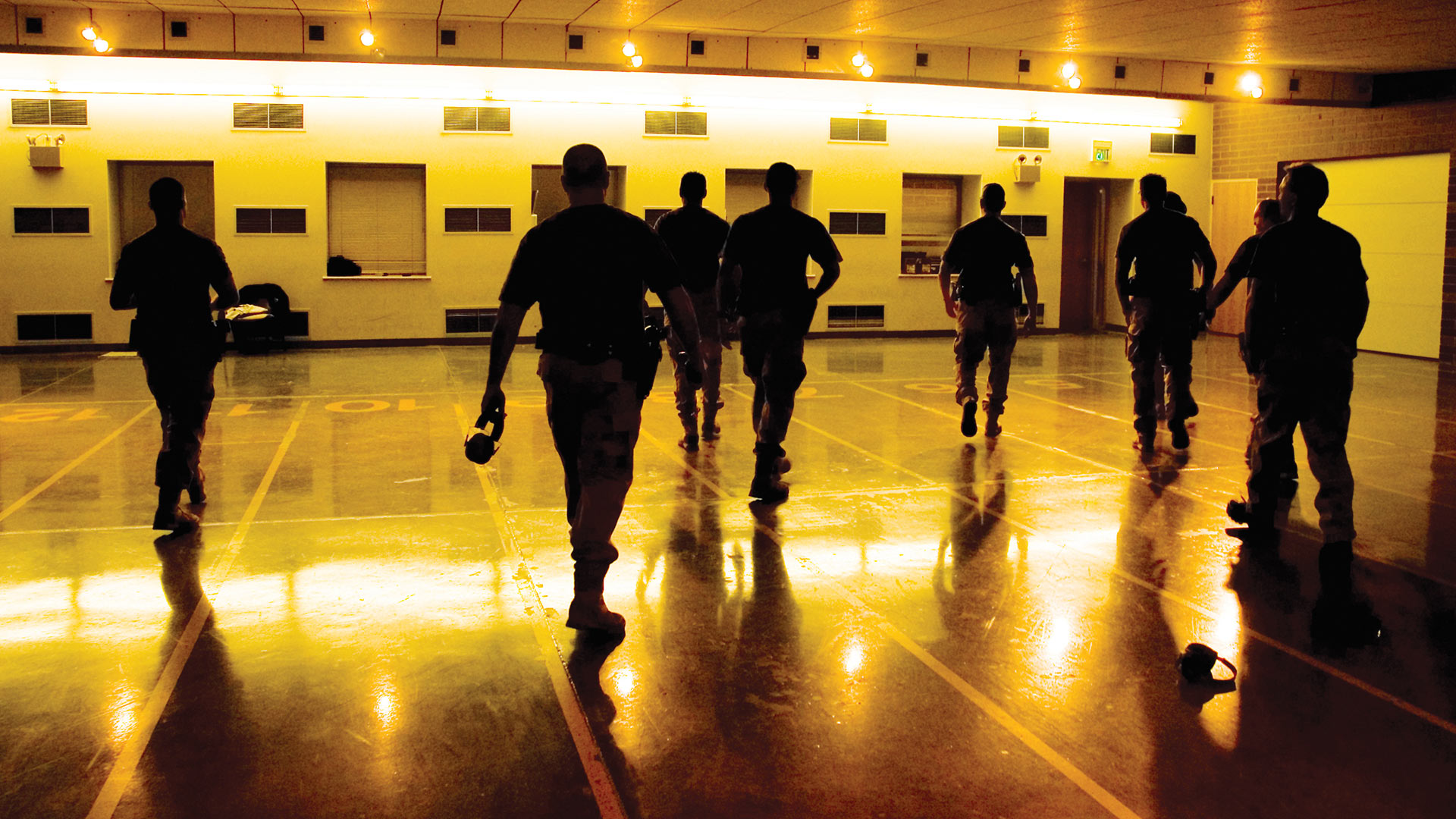
Despite its litany of faults, social media does have some good qualities. I’ve recently reconnected with a lot of old buddies from my days in the Marine Corps via various groups on Facebook. It’s interesting to see who ended up where. Some, like me, went on to various careers outside the military. It’s disconcerting to think that some of the wild and unpredictable young lance corporals I served with have gone on to lead companies of Marines, but I suppose we all grow up. The biggest surprise from these re-established connections came recently. A man I served under, who recently retired, made a post asking if anyone had any experience in applying for VA benefits. He then talked rather openly about his various battle scars, including PTSD.
When I knew the guy, the mere acknowledgement that either of us had actual feelings would have led to months of vicious harassment. To see my old sergeant talk so openly about the war wounds he carried was surprising.
It was also encouraging. It’s possible that guys just mature after 20 years, but I hope it’s more than that. I hope it’s indicative of a culture shift that encourages warriors to speak openly about the scourge that is post-traumatic stress disorder. The interaction also gives me hope that we might be at a place where law enforcement officers can show the same courage and compassion toward one another.
A real issue that needs real change
In all likelihood, suicide claims the lives of more officers every year than on-duty incidents. In 2019, a nonprofit organization that collects data about officer suicides tallied 239 incidents. For frame of reference, that’s more than twice the number of officers’ lives claimed by other on-duty deaths that year. It’s an issue serious enough to even garner attention by the federal government. In 2020, Congress passed the Law Enforcement Suicide Data Collection Act, an action requiring the FBI to begin tracking the statistic.
The problems with trauma go far beyond the consequences evidenced by officer suicide. Untreated trauma can reveal itself in numerous other ways that all make for a really shattered life.
None of this should come as a surprise. On a day-to-day basis, police officers deal with things that the average person will (hopefully) never even realize exists. They’re the wall that holds back all the horror that takes place in every town. They deal with it so that the average citizen doesn’t have to. Most people go about their lives blissfully ignorant of the truly rotten things that happen in their town every day. They don’t have to deal with these things because officers do.
Cops hear children relate how they’ve been abused. They watch people take their last breath. They tell folks that they’ll never see their loved ones again. They pour their hearts and souls into seeking justice for victims, only to see it denied by an imperfect justice system. On a daily basis, they wade into the abyss, hoping that they don’t bring a part of it back home with them at the end of their shift.
Cops, feelings and other things we don’t talk about
Several years back, I had a conversation with a colleague about critical debriefs. My conversational partner was the sheriff of a rural western county; the kind of character that John Wayne might have played. We discussed the importance of ensuring officers are given outlets to psychologically deal with the things they encounter. The ol’ sheriff’s position was, essentially, that officers who were bothered by being exposed to trauma aren’t suited to be in the law enforcement profession. It would be easy to dismiss the sheriff as simply being ignorant, but that’s far from the case. The man was incredibly intelligent and certainly one of the better law enforcement leaders I’ve ever worked with. His position, then, didn’t stem from ignorance or a lack of intelligence. It was representative of a prevailing view within the law enforcement culture at one time. That’s where he got it from.
That realization was a sobering one for me. I’ve been to countless lessons, seminars and events where speakers have eloquently argued the need for more open dialogue about mental health in the law enforcement profession. I’m on board and (I assume) most law enforcement leaders are as well. But my conversation with the sheriff convinced me of the deep-seated, tough-guy mentality we’re up against. When we discuss the need for a new attitude about mental health in law enforcement, it’s not just a matter of tweaking our training. We’re talking about changing an entire culture.

What to do
There are many things the law enforcement profession can do to help address these issues.
Mandatory critical debriefs are a no-brainer. Officers need to be provided a setting where they can discuss what happened. These post-incident gatherings allow officers to decompress and process what happened alongside their fellow officers.
Departments should ensure that traditional mental health counseling is available for officers, should they need to avail themselves of it. It should be confidential and easily accessible. If a government (be it city, county, state or federal) doesn’t fund these services for their first responders, they should be ashamed of themselves. Access to mental health services should be viewed in the same way as paying for a doctor’s visit after an officer has injured themselves on the job. Cities have a moral obligation to provide adequate access to mental health services for their officers, regardless of the cost.
But none of these services will adequately address the issue unless the culture’s viewpoint toward mental health is changed. That can’t be achieved by policy or legislation. Changing the law enforcement culture’s view toward seeking help can only be achieved by example. Just like my old sergeant on Facebook, law enforcement officers must be willing to be vulnerable. Culture starts at the individual level, and it’s the responsibility of individual officers to communicate that their fellow guardians won’t be looked down upon if they seek help.
Cops see the dark side of society. They tread where others fear and deal with horrors so that everyone else won’t have to. That type of thing takes a toll, and the profession needs to communicate that there’s no shame in seeking help for dealing with it. Needing help to deal with the death and destruction that cops see doesn’t mean you’re weak; it means you’re human.
Reference
Perine, T. (2021, May 26). “The Law Enforcement Suicide Data Collection: The FBI’s New Data Collection on Officer Suicide and Attempted Suicide.” Retrieved from Police Chief Online: tinyurl.com/28pdrdeu.
As seen in the September 2022 issue of American Police Beat magazine.
Don’t miss out on another issue today! Click below:





